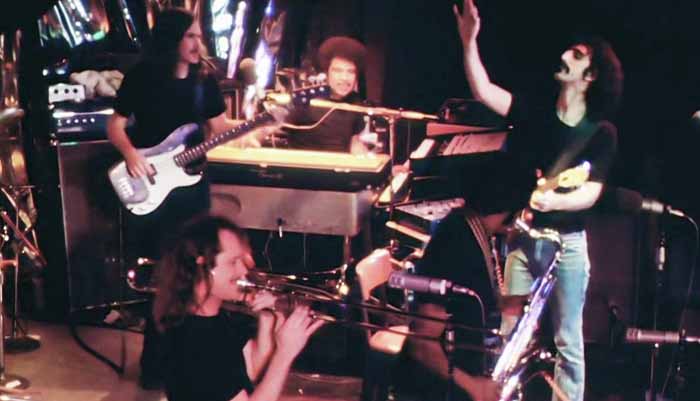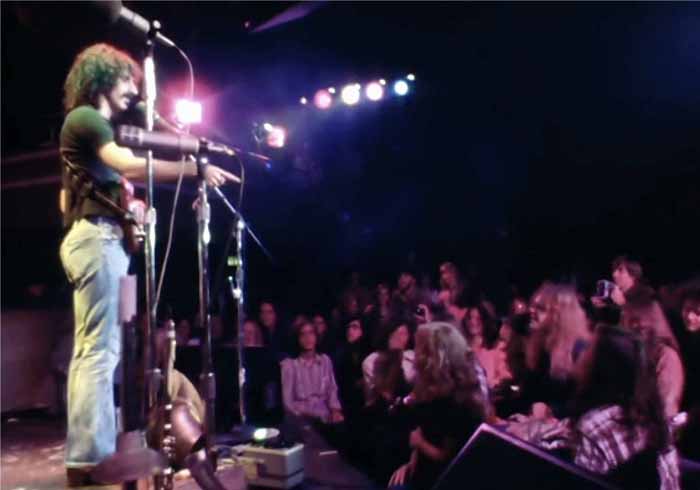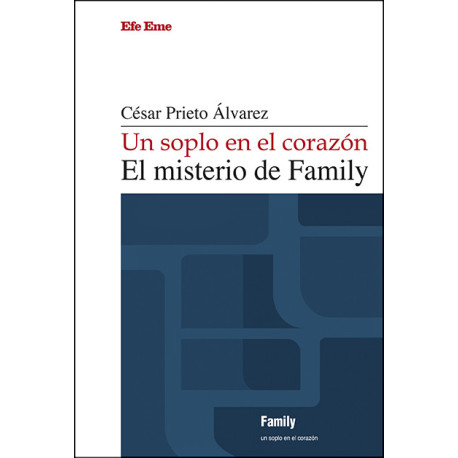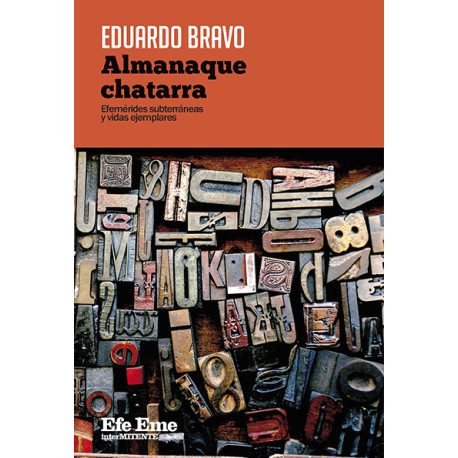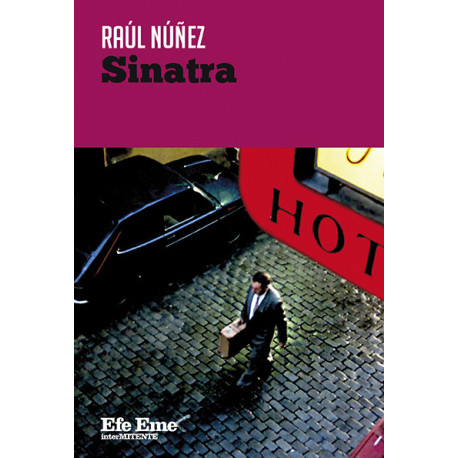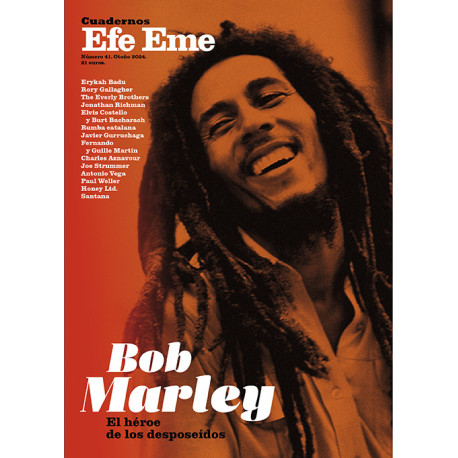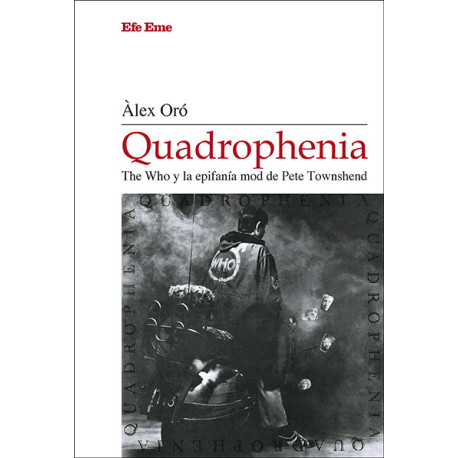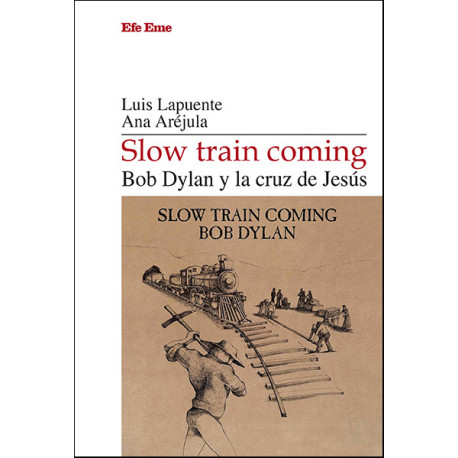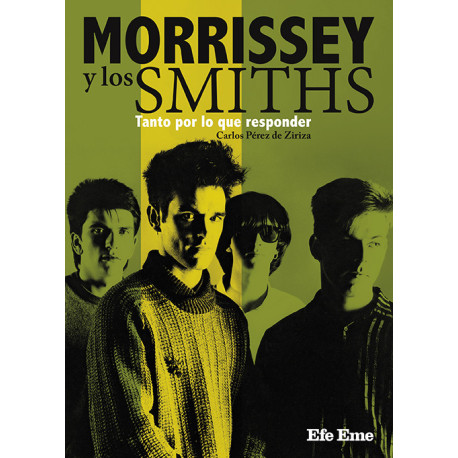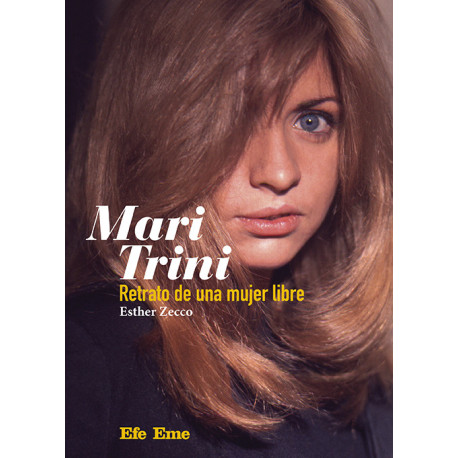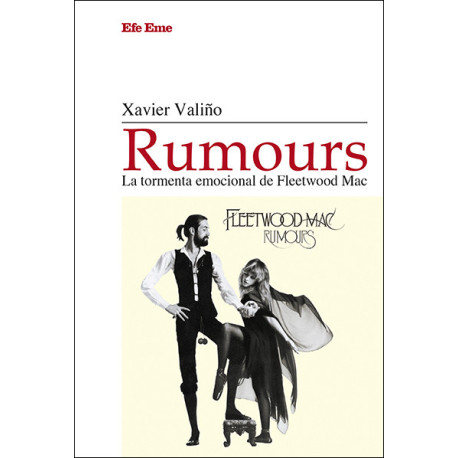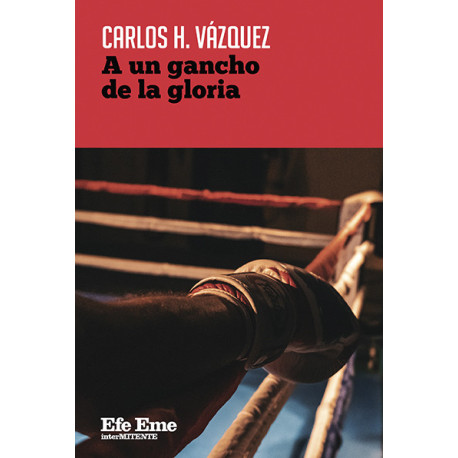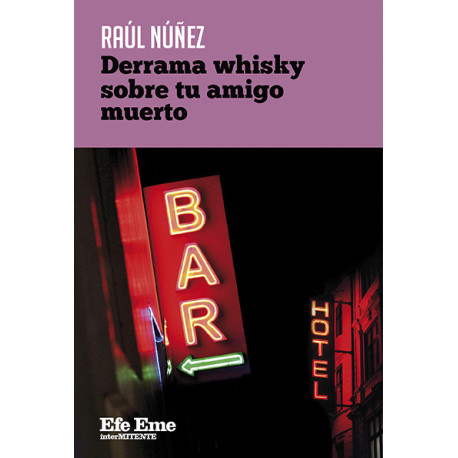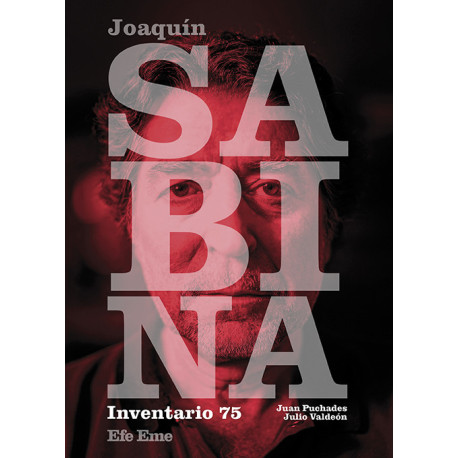“He was a wizard, he was a musical mad-scientist, and the way that his mind worked, the thing that I do now when I listen to these shows and to the music, is I listen to how present he is”
Manuel de la Fuente interviews Frank Zappa’s son, Ahmet, about the amazing show that he is preparing with the hologram of his father as the protagonist. He talks about the tour, which will start at the end of this year, and reflects on the legacy of the legendary American musician.
Text: MANUEL DE LA FUENTE.
Frank Zappa will be on tour again at the end of the year. He will perform as a hologram with some of his musicians playing his signature songs on stage in a multimedia show that will combine all kinds of audio and visual resources. This show has been designed by his son, Ahmet Zappa, who took over the Zappa Family Trust in 2015 after the passing of Gail Zappa, the wife of the late great American composer. Ahmet Zappa is being specially active in his new position. A lot of actions have been taken, such as the release of boxes with Frank Zappa’s music (“Halloween 77” and “The Roxy Performances”), the announcement of a documentary directed by Alex Winter, as well as the digitalization of a cornucopia of musical archives of a composer who registered hundreds of hours of music concerts and film material.
We kept this conversation with Ahmet Zappa on March 5th. It constitutes his first interview as the person responsible for the legacy of his father to a Spanish magazine. He talked about his work and provided us with some details about the surprising hologram tour, which celebrates the legacy of Frank Zappa, who was a cultural icon, an outspoken social commentator and a fighter for freedom of speech by all means at his disposal.
“The Roxy Performances” is the title of the new work by Frank Zappa that was released a few weeks ago. It brings us the complete set of his concerts at the Roxy Theatre in 1973. What was the preparation of this project like?
I think for the fan base. We were aware that “Roxy & elsewhere” is a really popular record and it’s certainly one of my favorite records for many reasons. I was born in 1974, shortly after that, so there’s a handful of records that I’ve listen to so much, and this is just one of ten records that I absolutely cherish. I really like Frank’s performances from the early 70s and late 60s, that sort of area is my sweet spot. I’m still trying to develop my own palette around some of his more challenging music for me to really contextualize.
My mother was sick, and she couldn’t fight for her life and run the business. And I really had nothing to do with the family business but my mother needed help, so I saved the catalog. I organized a new deal with Universal. We were just a “mom and pop” business and Universal has the infrastructure and resources for marketing. I was daunting to step in at the time when I did, mostly because I just wanted my mother to recover and beat cancer. So, the project that she really needed help on, which I thought was going to be one of many but it turned out to be really the only thing we worked on together, was Roxy: The Movie. And that was for me the first time I had seen any of that footage, and I never really paid any attention to the ins and outs of how any of these projects were made.
I know everyone that was involved. I met Joe Travers, our Vaultmeister, at Tower Records, he became my drummer and he’s extended family to me. It’s been over twenty years and I know he would go into the Vault and we would occasionally talk about the things that we would find that were really exciting to him, but again, this wasn’t my day-to-day business. So, in working on Roxy, I started to ask Joe questions like, what else was there? And that footage was really challenging to assemble as a film, so after the movie came out, it was pretty cool to release more music. We wanted to do something special, we’ve seen all the footage, we know what the nights were like, and it’s such an amazing band; I marvel at their ability, their level of excellence and the performances captured those nights. And it’s really strange to have lived with the record for so long, and then to hear these alternate versions of tracks you’re so familiar with. I’m like conflicted, I don’t know which ones I like more, or you try to get into the mind of Frank and think, “well, why did he select these versus those?” because they were all so good. But it just felt like a natural project to do considering I’ve had people ask me for it, so this was something I was really hoping people would be happy about and respond to. And I like doing these projects, I like taking these moments in time and seeing if there’s all these other sort of satellite aspects to the recordings that people are so familiar with. So, to the extent that we can do more projects where we have more media around seminal records, we’ll serve up the outtakes and alts and all of that. I think it’s really cool.
The Roxy shows are one of the gems in Frank Zappa’s. How do you see those concerts from our present time, more than four decades after they took place?
I think it’s the style of the artist, and what they bring as a musician. I think it speaks to the uniqueness of Frank. This is somebody that was pushed off the stage into the orchestra pit and almost died, but that didn’t change his connection and the way that he performed with his audiences. I think other people might not want to play again, or have a ton more security, and that certainly wasn’t Frank’s way, he very much liked to connect with his audience. And also, the Roxy is a historic venue, it adds to the style of at least the movie, because of the size, that the stage isn’t so high, so far away from the audience. Frank liked the audience participation, his style of the show is very different from other rock and roll outfits. He could see someone was having a unique experience, he would engage with that person, try to interview them and put a mic in front of his or her face. We had tons of those elements, you hear it on other concerts that we put out, like the “Baby snakes” movie. He was just always engaging.
In that movie he even takes his bodyguard and says to him: “Okay, let’s sing ‘Muffin Man’ together”, which reveals his way of breaking all barriers.
Yes, I guess the whole style of performance is unique, yes, but certainly, the level of musicians he surrounded himself with… I don’t see anyone else doing that. I wish someone would tell me. I don’t say that to try to put my father up on some pedestal, I’d love other people to recommend other things that are as mind-blowing as my dad. I could totally be biased, because he’s my father, but I still marvel at the fact that he was a wizard, he was a musical mad-scientist, and the way that his mind worked, the thing that I do now when I listen to these shows and to the music, is I listen to how present he is. I talk about this a lot –he didn’t stutter, he didn’t say “ummm,” “like,” “ahhh,” none of that happened, he just said exactly what was on his mind, perfectly. He was just firing on all cylinders all the time, and that’s so special.
The release of “The Roxy performances” is more or less in line with “Halloween 77”, which is to offer complete and chronological editions of the signature series of concerts by Frank Zappa. This constitutes a change of direction in the posthumous releases of his live performances. How did you come to this decision?
For me being organized is really important. Some of the first things that I didn’t know what the media was, I didn’t know how many pictures we have. I didn’t know anything about the day-to-day operations and how the choices were made because my mother really wasn’t a resource, certainly after she passed away. My mother knew where everything was, she had her mental filing cabinet. So I had to learn as I went along. I have such an amazing support team because I have Melanie and Holland and Joe and people that have been working with my mother for a long time and you just couldn’t do anything without the staff. It’s a group effort, everyone’s really passionate about what they do here and that’s a real blessing because I know I couldn’t have done any of this stuff without their support, and certainly their know-how. So, I’ve been listening to the fan base and just having my own opinions about how I would want things as a fan. I am trying to deliver to the fan base more music, the way they want it, when they want it and how they want it.
My goal is to set the music, make sure that people can share it and experience it. This is my goal continuously, to create packages and things that I think people would really want. It seems like a natural scenario to do this but I’m just glad people are appreciating it. I’m really proud of the Roxy box, I’m super proud of the “Halloween” box. I think that people had huge opinions about how my mother would release the content and how she ran things, and I can’t really speak to that because it wasn’t my day-to-day. When I got involved, it was all about organization, it was about getting it ready so that we could have more releases in a timely manner, and I always thought that my mother’s packaging was really cool. I hope people enjoy the amount of creativity that I can bring to the experience.
Will you follow this path in the future?
Frank would sometimes play a couple of nights and sometimes he might have played two shows in the same day. I have so much stimuli with awesome concerts and things that we have, that I wish it was as easy as just like, “now people, you fucking need to hear this right now!” and I want to just put it out. But that’s not really smart. There’s so much good stuff in the vault, it’s exciting. Now, there’s also some pretty significant challenges, too. It’s also about the preservation of the media because sometimes the tape is in a really bad shape and we have to vape the tape and dump it to digital, and you hope it survives the dubbing process. Other things that I’m really interested in is we have so much music from Frank’s later years when working on the Synclavier, I mean thousands and thousands of hours of never-before heard compositions, and that’s pretty daunting. We could pull out the records but I want to try to get those translated so the orchestras can play them. And that’s challenging because Frank also built his own sound library, and we have to make some decisions as you have someone who’s going snorting, or you have some weird “ting ting ting” noise like bell noise, and you make a decision as to, should that be a glockenspiel? Should the snort noise be on a tuba? It’s not a one-to-one translation. I want to try and find the right partners to be able to bring more of that music to the world.
“This is somebody that was pushed off the stage into the orchestra pit and almost died, but that didn’t change his connection and the way that he performed with his audiences”
What comes next after releasing the “Halloween” and “Roxy” performances?
I’m going to do another “Halloween” box, with a new mask. I want to try to keep releasing those, I want there to be this collection, keeping with the similar kind of format. We didn’t know how people would feel about the “Halloween” box, but I think it was well received. Right now, I’m trying to decide on what style; should we have a zombie Frank mask? Should it be a poodle Frank mask?
In 1988, Frank Zappa toured for the last time. That particular tour was pioneering since it focused on political commentary and the defense of the First Amendment in the Reagan era. Zappa edited part of those shows in several works, such as “Broadway the hard way”, “The best band you never heard in your life” or “Make a jazz noise here”. Have you considered releasing more concerts of that tour?
That era is interesting because there are a lot of sound profiles, like noises and things he made on the Synclavier, and also Frank was able to bring on the road with him. I was at so many of those shows, and that was one of the biggest tours. I saw more of those shows than anything else. So, I have this connection between those dates, him discovering he was sick, and again, then the focus he had after being on tour when he was sick and then just working in the studio. And certainly the people that visited the house, the things he recorded towards the end of his life, there’s a lot of material there. I don’t know that it’s necessarily, look if you’re saying, “would we do all nights from 1988,” or something like that.
Because there are a lot of concerts from 1988.
Yes, I think it’s a little different because the Halloween shows are legendary for being on Halloween night, so we have all of these shows that are clustered around Halloween, which kind of feel inherently, “oh, that’s a box-set”. I’m trying to think of a night in ’88 that feels like a Roxy night. It’s hard to choose. We could do the entire run of ’88 as like a 700-disc series, it’s crazy.
Fans must be aware of the economic circumstances since you are a family business.
I focus a lot more on the late 60s and 70s, for no real reason other than I like that era, but we’ve really been listening to the fans, and when we hear of what the fans really talk about, we focus on those things. I’ll have to try to get with Joe – just because you’re asking– and “what have you got from the 80’s?” That could be an option.
Frank Zappa recorded almost all of his concerts and hundreds of hours of music and film material were kept in his private archives. One of your first steps as the person responsible for the Zappa Family Trust was to digitalize and organize the catalog. At what stage is this process at this particular moment?
Joe Travers, the Vaultmeister, has been working with the audio, and the video for some capacity, for some twenty years, and it’s been mostly: “Hey, let’s pull these tapes down, how do they sound, let’s make a record out of this project, let’s see if we can.” The audio is actually a slower process, you can’t just in one fast loop put it on a bunch of machines and dump them to digital, because Frank had a unique way of editing. So, you actually had to watch the tapes as you’re dubbing them to digital, because there’s information that Frank may have left actually on the tapes. You might find Frank sometimes would record something, and all of a sudden, some other moment of time shows up on that reel. It’s a slow process because you have to pay attention to what’s happening there. That’s moving along certainly at a faster pace than it has before. But you must also keep in mind that as a family business, Gail would put something out and then the money that she would make from those projects would go back into making new projects, so she was the bank. So, part of what’s great with Universal, when I got in a negotiated with them, is that it allows us to have capital that’s available to us to work on more projects if we want. That burden used to be on my mother’s shoulders all the time.
Regarding this agreement with Universal Music Enterprises, what other advantages have the Trust obtained in terms of production and distribution?
They’ve been great. That’s just one of the many benefits. I mean not to get very personal, but with my mother, it’s very expensive to go through cancer, so I think it was kind of a necessity to make a new relationship. And I think ultimately, it was a good decision on all levels, because Universal’s been really great. They’ve let us do what we want to do, it’s a great partnership. We tell them like, “hey, these are the shows we want to do,” and they’re like, “awesome!” It’s just a better scenario all around.
Could you describe one of your regular days working as the person in charge of preserving and restoring Frank Zappa’s legacy?
I show up at work at 9:30 am and we leave at 7 pm. A lot of my time is spent on all the creative right now, all the visuals that is going into the hologram tour and working on the organization –who’s playing what nights and so on. And we’re still selecting the songs for that process, because it’s pretty complicated. At least in this show you need to organize what the set list is, or what the songs are that could be played in the night, and then we have to create visuals around that audio. That’s been tough, we’re doing 90 minutes of music, if not more, and there’s so much to choose from. Any visuals we have accompanying the song need to be thought out in advance, and I also want there to be able to have more nights of improvisation, changes to the set list, so it’s been interesting trying to figure out what are the things we can do. I think the fans expect something, and if they’re going to come more than once I want them to be surprised that each night feels different, so with that I’m still working out all the details.
This hologram tour of Frank Zappa was announced a few months ago and has generated a lot of buzz. Have you already decided dates and venues for these shows?
Well so the goal is to have one of the first shows in December, around my dad’s birthday. And then we’ll be touring throughout the world in 2019.
Where are you touring outside the United States?
We’re going to try and go everywhere. I don’t have a list yet but the reactions been pretty amazing so far, and I’m sure we’re going to be coming to a theatre near you very soon. I’ll tell you what I’m not interested in, and this is not saying that any of these other experiences have been bad but it’s just not my cup of tea. When you see Tupac was amazing, that they pulled that off, or those other shows like the Maria Callas one. We learnt so much from that experience, and a lot of these shows really just consist of the idea that someone looks very photo-realistic and is on stage as they try to create the illusion that they’re standing on stage and we can definitely do that. But if I just wanted Frank standing on the stage in a very photo-realistic version, I think that’s not what a Zappa audience wants. But for me and even when my mother was alive, we had many conversations with people that wanted to create a hologram tour for Frank, and Frank even, as you know as you did the translation, because in chapter 18 when he talks about failure and the hologram business he wanted to start. So, for me I feel like I’m finishing what he started.
What will these concerts be like?
And the show is going to be so fucking bananas. It’s not going to be just Frank standing on stage. If he is performing “Stink-Foot”, why wouldn’t we have an 800-pound python boot on stage singing his song? To me, that’s more interesting. It’s like a really fucking bizarre trans-Zappa movie that’s been scored live by the band. It’ll be performances from Frank that no one has ever heard before. We’re going to be bringing to life some of his album covers, and we have a lot of his artwork that we can bring to life. So, you’ll see a stop-motion animated version of Frank, you’ll see a paper cut-out version, you’re going to see all of these iterations that are in the style of how Frank even put himself out there on his album covers. So, like “Ruben & The Jets”, as a kid I would look at them and think, “oh, look, that’s a cool looking version of my dad.” I think in the same way that we would approach some of the music, if people are familiar with it from a certain visual standpoint. That’s the goal here, how do we serve up what the fans want, again depending on what track it is, are there elements from one, are there things in the album cover or the inside of the record that we can bring to life that support that song. I’m not saying we’re going to do this, but we were going to do “Sofa” with the lyrics, and in that version, the sofa could sing like on “Television Playhouse”. I guess that’s what’s so awesome about what we can do with holograms now is that that will look real on stage.
So, I’m interested in the twenty-foot tall version of Frank. So, when you see Frank, I’m going to be play around with scale. I’m taking Frank from a certain period of time that I think he looks really cool, from the early 70’s. I also like the “Baby snakes” era, it’s a very stylized show. It’s weird to me that people have pushed back, when again, a show that I put together for my brother, the “Zappa Plays Zappa” tour, people thought it was really shitty that Dweezil had been on stage with Frank in the video doing guitar solos. And then I’m like why didn’t people complain, and then actually it was an amazing experience that people thought it was great. This is just a huge evolution of what’s possible because we have all these resources, we have all this imagery that we can volumize, and make it appear to be on stage. It’s super appealing to me, just creatively and visually, because I think that once you have these digital assets that exist in a computer, not the audio or the video but the new things that we’re creating, you can do so much with that. If you wanted to, I could have that concert appear on your desk, which is cool.
So, you don’t want to celebrate the nostalgia but his legacy.
Sure, yes. We have a vault, we have hand-drawn illustrations, we have all of these photos, we have all of these things that we can bring to life that are from his career and from his legacy. You’d never be able to see the version of Frank on “Ruben & The Jets” perform unless it was animated, turned into a hologram and brought onto the stage. Also, to me what’s cool is that I can visualize other instruments, and present them in a way. If you forget about my father for a second, think about how cool this technology is that if you wanted to have any other artists, like Justin Timberlake. I’m just picking one out. The thing is we can have five Justins on stage right next to him, and they could all be singing in harmony. That’s what’s cool about holograms, from a stagecraft point of view. And what I’m trying to do with delusion is to add this other texture to any kind of live performance, where we can make magic tricks happen. I actually think that people, when they think about hologram tours, just haven’t had great examples of what’s totally possible, and maybe it’s that no one has or is bringing what’s in my head onto the stage. I want to do some fucking crazy shit, like have one giant floating Frank head, like the Wizard of Oz, as The Central Scrutinizer. Awesome!
Another project that was announced is a biographical documentary on Frank Zappa directed by Alex Winter. The crowdfunding campaign turned out to be very successful and raised more than one million dollars. How far has this project progressed to date?
That’s an amazing experience, to raise that amount of money, that’s the fans stepping up and I’m overwhelmed by their generosity and their love for Frank. What they accomplished in that Kickstarter is that all of that film in the vault that was melting away has been preserved, and it’s been put into a content management system, so that at least internally we can say “bring up that video from 1968, or a video from 1982”, and none of that existed before. It just sat in the vault, and it was melting. What I was trying to do, and with very little resources at that time, was again a realization, and ultimately will give fans, through this process of Alex’s movie. I mean, we get to see what’s there. So now it’s all been preserved and been put into a content management system, and Alex is assembling his vision for the crucial bio doc right now.
Could you provide us with more details about this documentary such as its expected length or structure?
It’s really Alex’s film. My mum put a lot of trust in him, and I do as well. He’s a great filmmaker. The story starts to take shape when you see all the media. I’m curious to see what his point of view will be and what the movie looks like, too. It’s his movie. He’s very passionate about Frank.
“I want to do some fucking crazy shit, like have one giant floating Frank head, like the Wizard of Oz, as The Central Scrutinizer”
2018 is special since it marks the 25th anniversary of Frank Zappa’s passing away. Let me ask you a personal question. How do you face the fact of constantly revising audios and film footage of your father?
It is definitely a blessing. It’s certainly not the same as having Frank in my living room, cooking him dinner or buying him a cherry pie or getting him his favorite ox tongue and Swiss cheese on a roll with Russian dressing, I can’t do that. But if I think about other people who have lost someone they loved so much, it’s amazing that I can go on YouTube right now and I am lucky that there is a lot of footage and audio of him, because it’s heart-warming. I like the moments when he’s laughing or when he’s smiling. And that’s a gift, to be able to have those things. My mother and father were totally unique and they provided a whole lifestyle and safety and security and they did the best that they could with what they had, and it was an extraordinary experience. So, it’s emotional when I see the footage or hear the audio. It’s a whole range of emotions, because also, I can instantly relate to Frank’s disappointment when I see him being disappointed in something, it just takes me right there, like if the band messes up or he gives someone in an interview, the kind of look which is like, “you’re wasting my time” or “you’re being a jerk.” And I’m just like, “ahhh!” I can feel just how much he didn’t want to be there. So, it’s weird to have your dad around you so much more now than he ever was around when he was alive and when I was a kid.
It’s also really helpful, because if you’re ever trying to make a decision about what to do, chances are he talked about it and he himself can be the answer to the question. You know, like as an example, when you say, “okay, so why do a hologram tour?” It’s great for every artist, because it definitely is a perfect journey, but Frank was definitely interested in it, and again I had so many conversations when I was younger with Frank about holograms and why he wanted to do it. So when fans have any sort of push back, I’m just like, “well okay, I mean, really?” because he fucking writes about it in his book and I personally had conversations with him about him wanting to be able to do this.
I’ll give you an example. Frank did this night of music in Berkeley called “A Zappa affair”, where he had dancers on stage wearing puppets. I want to say that Kent Nagano was the conductor and it was a puppet ballet and I just remember being blown away as a kid at the performances, how they did these dances, because they were all in black and they had the puppets, the big foam heads. That feels very in line with what my father would do. I’m really trying to honor the things he was interested in, and then visualizing them for the show.
Another of his recordings that remains unpublished at the present time is “The rage and the fury”, with music by Edgar Varèse. Do you have plans for its release? Do you plan to edit more films on or by Frank Zappa?
We could make a whole movie about that, we have those final moments. But that record’s amazing. It’ll come out.
And more films on or by Frank Zappa?
Yes, there are occasional works. You’ll see more projects that are Zappa related.
The appreciation of Zappa’s legacy has increased in Spain and the Hispanic world in the last few years. His memoirs (“The real Frank Zappa book”) were finally translated into Spanish in 2014 and a vast number of artists acknowledge the huge influence he has had on them. How do you perceive this international vindication of Frank Zappa’s figure?
I think it’s super important. I want more people to actually have an understanding about an artist who never backed down from a fight, spoke his truth and took a stand when others wouldn’t. People didn’t treat him very kindly for having the opinions he had, but I think they’re totally relevant today. He was a futurist, he was spot-on in terms of his politics. I think it’s scary that things that he was worried about, that actually transpired. He was a real champion of artists, of everyone. He was so badass, man. I mean, it’s also one thing, it’s not like someone wrote him a check and said, “hey, can you go fight this fight?” He spent his time, his energy, his own resources to try and make a difference for other people. And I think people understand that, but I would like more people to try and use the examples he set for us, and to try and take the time to fight for what they believe in. You don’t have to agree with what my father said, but if more people are willing to have tough conversations, listen, certainly more people need to go out and register to vote. I think that’s one of the greatest things my father did, by encouraging people to be involved, registering people at his concerts. That was really important.
Finally, you are also a writer. Your debut novel, “The monstrous memoirs of a mighty McFearless”, was very successful and a film adaptation was announced. Will you go on with your literary career? What plans do you have in this field?
I still write books, I still enjoy doing that. My wife and I created this thing called the “Star Darlings”. We did 15 books, we made a bunch of toys, made a few specials on Disney, and I really like working in the kids’ space. I’m working on a few books now. But I’m pulled in so many directions because after my mother passed away it’s been total chaos. I plan on writing a few more books. There is a big novel in my head, and there’s other kids’ books that I think about all the fucking time, and I’ve just go to make the time to write them. It’s really challenging, especially when you have two kids. I don’t take a salary for working for the family, I do all this for free. And then I have my own jobs that pay my actual bills. So, I think a lot of people have a misunderstanding about what I do and how I do it. I have one job, and that’s to make sure everything is done fairly for the entire family, and any sort of gripes anyone hears from the other family members is devastating to me personally, but someone has to make sure everything’s done for the benefit of everyone, and I take it really seriously, to the point where I, again, I don’t take a salary.




